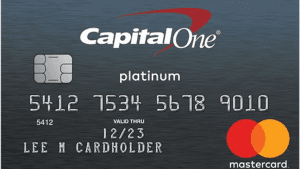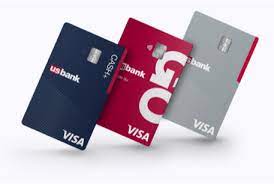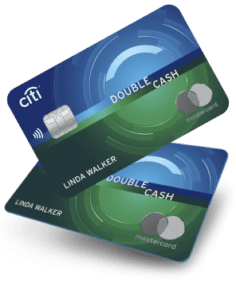Contents
- 1 Before using any of the 10 best cards to build credit, you must first Understand Credit Scores and Why They Matter
- 2 Credit scores are influenced by several factors, including:
- 3 How To Use The Best Cards To Build Your Credit
- 4 Factors to Consider When Choosing The Best Cards To Build Your Credit
- 5 The Best Cards To Build Your Credit
- 6 How to Apply for The best cards to Build Credit
- 7 Tips for Using The Best Cards To Build Credit Responsibly and Boost Your Credit Score
- 8
- 9 Monitoring Your Credit Score Progress
- 10 Alternatives to Using The 10 best cards to build credit
- 11 Conclusion
Before using any of the 10 best cards to build credit, you must first Understand Credit Scores and Why They Matter
To understand how to use the best cards to build credit, it’s essential to know how credit scores are calculated. When it comes to your financial health, few things are as important as your credit score. Your credit score is a three-digit number that reflects your creditworthiness and is used by lenders to determine your eligibility for various loans and credit cards. A good credit score can open doors to better interest rates, higher credit limits, and more favorable loan terms. On the other hand, a poor credit score can make it difficult to secure credit or may result in higher interest rates and less favorable terms.
Credit scores are influenced by several factors, including:
- payment history,
- credit utilization,
- length of credit history,
- new credit inquiries,
- and the types of credit accounts you have.
By using the best cards to build credit responsibly, you can positively impact these factors and improve your credit score over time.

How To Use The Best Cards To Build Your Credit
Credit cards are one of the most effective tools for building credit. When used responsibly, they can help establish a positive credit history and improve your creditworthiness. Here’s how credit cards can help boost your credit score:
Payment History: Your payment history accounts for 35% of your credit score. Making timely payments on your credit card bills demonstrates responsible financial behavior and can significantly impact your credit score. By consistently paying your credit card bills on time, you can establish a positive payment history, which is crucial for building good credit.
Credit Utilization: Credit utilization refers to the percentage of your available credit that you are using. It accounts for 30% of your credit score. By keeping your credit card balances low and utilizing only a small portion of your available credit, you can maintain a low credit utilization ratio and positively impact your credit score.
Length of Credit History: The length of your credit history contributes to 15% of your credit score. By opening a credit card and keeping it active for an extended period, you can establish a longer credit history, which is viewed favorably by lenders.
Types of Credit Accounts: Having a mix of different credit accounts, such as credit cards, loans, and mortgages, shows that you can manage different types of credit responsibly. By adding a credit card to your credit mix, you can diversify your credit profile and potentially improve your credit score.
By understanding how credit cards can influence these factors, you can strategically choose the best cards to build credit. They should be aligned with your goals and financial situation.
Factors to Consider When Choosing The Best Cards To Build Your Credit
When selecting a credit-building credit card, it’s crucial to consider several factors to ensure it meets your needs and helps you achieve your credit goals. Here are some key factors to consider:
Annual Fees: Some credit-building credit cards may have annual fees. Consider whether the benefits and features of the card justify the annual fee and whether it fits within your budget.
Interest Rates: Compare the interest rates offered by different credit-building credit cards. Look for cards with competitive rates to ensure you don’t end up paying excessive interest charges if you carry a balance.
Credit Limit: The credit limit determines the maximum amount you can charge on your credit card. Choose a credit-building credit card with a suitable credit limit that allows you to make necessary purchases while keeping your credit utilization low.
Rewards and Benefits: Some credit-building credit cards offer rewards programs, cashback options, or other benefits. Evaluate the rewards and benefits offered and determine if they align with your spending habits and needs.
Credit Reporting: Confirm that the credit-building credit card reports your payment history and credit utilization to the major credit bureaus. This ensures that your responsible credit card usage is reflected in your credit report and contributes to building your credit score.
By considering these factors, you can choose a credit-building credit card that suits your financial goals and helps you improve your credit score effectively.
The Best Cards To Build Your Credit
The best card for you, depends on your credit history, goals and preferences. Although there are quite a few, these are the best cards to build your credit.
Capital One Platinum Credit Card: 
- Discover it® Secured Credit Card: This card is a secured card, which means you have to make a refundable security deposit of at least $200 to get a credit line. The card offers 2% cash back at gas stations and restaurants (up to $1,000 in combined purchases each quarter), and 1% cash back on all other purchases. Plus, Discover will match all the cash back you earn in your first year. The card has no annual fee, no foreign transaction fee and a standard APR of 22.99% variable. You can also get a free FICO® Score every month and monitor your credit progress. After eight months, Discover will automatically review your account to see if you qualify for an unsecured card.
- U.S. Bank Cash+® Visa® Secured Card: This card is another secured card that requires a minimum deposit of $300 to open an account. The card offers 5% cash back on two categories of your choice (up to $2,000 in combined purchases each quarter), 2% cash back on one everyday category (such as gas or groceries) and 1% cash back on everything else. You can also get a $25 bonus when you redeem $100 or more in cash back in a single redemption. The card has an annual fee of $29 and a standard APR of 25.99% variable.
Capital One Platinum Secured Credit Card:
Deserve Digital First Card™: This card is designed for people who have no credit history or are new to the U.S. It does not require a security deposit, a social security number or a credit check to apply. You can get approved instantly and access your virtual card number right away. The card offers 1% cash back on all purchases and up to $600 in cell phone protection when you pay your bill with the card. The card has no annual fee, no foreign transaction fee and a standard APR of 18.74% to 24.74% variable.
U.S. Bank Altitude® Go Visa® Secured Card:
Discover it® Student Cash Back:
Citi® Double Cash Card:
These are some of the best cards to build credit, but they are not the only ones. You should compare different cards and find the one that suits your needs and preferences. Remember to use your card responsibly, pay your bills on time and keep your credit utilization low. This will help you improve your credit score and qualify for better cards in the future.
How to Apply for The best cards to Build Credit
To apply for a credit-building credit card, follow these steps:
- Research and compare credit-building credit card options. Consider the features, benefits, and eligibility criteria of each card.
- Visit the website of the chosen credit card issuer and navigate to the credit card application page.
- Fill out the application form accurately, providing the required personal and financial information.
- Review the terms and conditions of the credit card before submitting the application.
- Submit the application and await a response from the credit card issuer.
- If approved, carefully review the credit card agreement and any associated fees.
- Activate your credit card upon receipt and start using it responsibly to build your credit score.
- Remember to provide accurate information and only apply for credit-building credit cards that align with your financial goals and creditworthiness.
Tips for Using The Best Cards To Build Credit Responsibly and Boost Your Credit Score
Using a credit card responsibly is crucial for building a positive credit history and boosting your credit score. Here are some tips to help you make the most of your credit-building credit card:
- Pay on Time: Make timely credit card payments to establish a positive payment history. Set up automatic payments or reminders to ensure you never miss a payment.
- Stay Within Your Credit Limit: Keep your credit utilization ratio low by using only a small portion of your available credit. Aim to keep your credit card balances below 30% of your credit limit.
- Avoid Carrying a Balance: Pay off your credit card balance in full each month to avoid unnecessary interest charges. If you must carry a balance, strive to keep it as low as possible.
- Monitor Your Spending: Keep track of your credit card spending to avoid overspending or exceeding your budget. Regularly review your credit card statements for any discrepancies or fraudulent charges.
- Avoid Opening Multiple Credit Accounts: While having a mix of credit accounts is beneficial, avoid opening multiple credit cards within a short period. This may raise concerns about your creditworthiness and negatively impact your credit score.
- Regularly Check Your Credit Report: Monitor your credit report for any errors or discrepancies that may affect your credit score. Report any inaccuracies to the credit bureaus and follow up for resolution.
By following these tips, you can use your credit-building credit card responsibly and effectively improve your credit score over time.
Monitoring Your Credit Score Progress
Even using the best cards, to build your credit score takes time and patience. It’s essential to monitor your credit score progress to track your improvement and identify areas where you can make further adjustments. Here’s how you can monitor your credit score:
Credit Monitoring Services: Subscribe to credit monitoring services that provide regular updates on your credit score and report changes. These services can also alert you to any suspicious activity or potential identity theft.
Free Credit Reports: Obtain free credit reports from major credit bureaus annually. Review your credit reports for accuracy and identify any areas that require attention or improvement.
Credit Score Apps: Utilize credit score apps that provide real-time updates on your credit score and offer personalized tips for improvement. These apps can help you stay on top of your credit journey and make informed decisions.
By monitoring your credit score regularly, you can track your progress and ensure that your efforts to build your credit are paying off.
 Alternatives to Using The 10 best cards to build credit
Alternatives to Using The 10 best cards to build credit
While credit-building credit cards are a popular choice for individuals looking to improve their credit score, there are alternative options available. Here are a few alternatives to consider:
Secured Loans: Secured loans, such as a secured personal loan or a secured auto loan, can help build credit when repaid responsibly. These loans require collateral, such as a savings account or a vehicle, to secure the loan.
Credit-Builder Loans: Credit-builder loans are specifically designed to help individuals establish or improve their credit. These loans work by holding the loan amount in a savings account, and as you make timely payments, the lender reports your payment history to the credit bureaus.
Authorized User: Becoming an authorized user on someone else’s credit card can help you build credit. When the primary cardholder makes timely payments, it can positively impact your credit score. However, it’s crucial to choose a responsible cardholder who manages their credit well.
While credit-building credit cards are a popular choice, exploring these alternatives may provide additional options for improving your credit score.
Conclusion
Building your credit score is a journey that requires time, effort, and responsible financial habits. We have discussed the best cards to build credit and these cards can be invaluable tools. Using these cards is a journey that leads to a positive credit history and improved creditworthiness. You should begin with learning how credit cards impact your credit score. Then, by using it responsibly, you can boost your credit score effectively. Explore the top 10 credit-building credit cards, compare their features and benefits, and choose the one that suits your financial goals. With patience and perseverance, you can achieve a stronger credit profile and unlock better financial opportunities. Start building your credit today with the best credit-building credit cards available.



 Alternatives to Using The 10 best cards to build credit
Alternatives to Using The 10 best cards to build credit